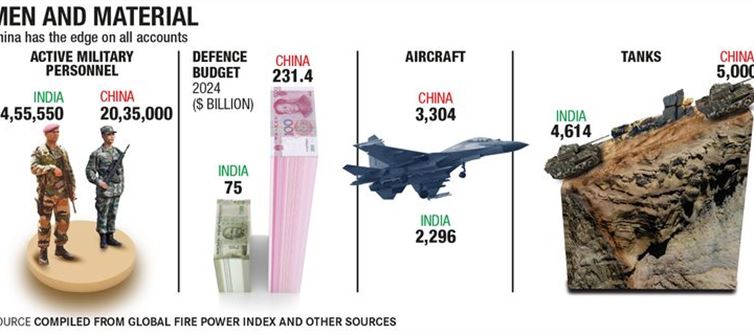
Dr. Iyer’s central query—“Why is the defence budget of india compromised?”—strikes at the heart of a growing debate about whether the nation’s security preparedness is being undermined by populist welfare schemes. This comparison, set against the backdrop of a geopolitically tense region, has sparked widespread discussion among policymakers and citizens
The figures presented by Dr. Iyer underscore a significant disparity in military spending, with China’s budget reflecting its status as a global superpower with a $18 trillion economy, as noted by a respondent, Chandrashekhar, who argues that india cannot realistically match this without sacrificing essential social investments like healthcare and education.
India’s defense allocation, at 1.9% of its GDP, falls short of the 2.5% recommended by experts to counter threats from china and Pakistan, with a substantial portion already consumed by salaries, pensions, and operational costs. The $60 billion earmarked for freebies—encompassing subsidies, loan waivers, and other populist measures—represents a significant chunk of the national budget, raising concerns among users like aviator(Gaurav) and pawinsky, who suggest that vote-bank politics may be prioritizing short-term gains over long-term security, a sentiment echoed in the thread’s critical tone.
The reactions to Dr. Iyer’s post reveal a polarized public, with some, like SANDIP HALDER, urging the inclusion of minority budgets to further contextualize the spending, while others, such as supriya Hansda, lament the focus on freebies over national defense as a misstep in governance. The thread also draws attention to broader economic comparisons, with abhinay Pandey noting China’s $58 lakh crore education budget versus India’s $1.27 lakh crore, suggesting a holistic underinvestment in critical sectors.
This discussion, fueled by the original tweet and its diverse responses, underscores a pressing national challenge: how india can balance its ambitious social welfare commitments with the urgent need to bolster its military capabilities in an increasingly volatile geopolitical landscape, prompting calls for a reevaluation of budgetary priorities to safeguard both its people and its borders.




 click and follow Indiaherald WhatsApp channel
click and follow Indiaherald WhatsApp channel